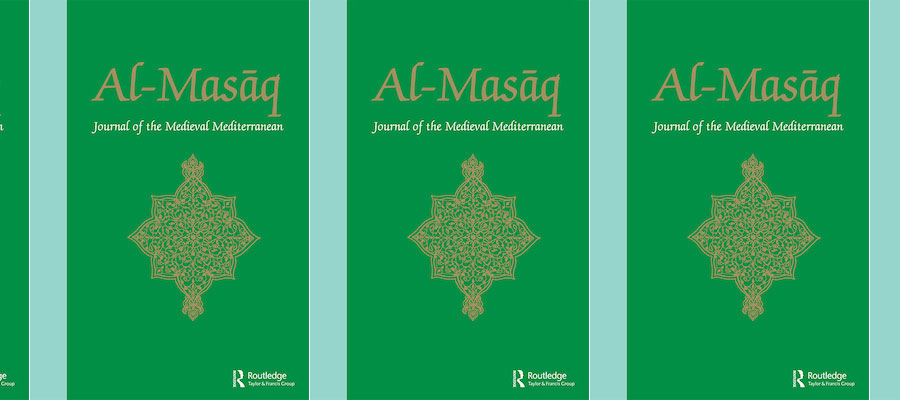Al Masaq: Islam and the Medieval Mediterranean, volume 33, number 2 (4 May 2021).
CONTENTS INCLUDE
“There is no harm in it”: Muslim Participation in Levantine Christian Religious Festivals (750–1000)
Anna Chrysostomides
This article explores early Muslim participation in local and large Christian festivals through the lens of two discussions within a tenth-century legal responsa, the Ahl al-milal. The local festivals of Job at Dayr Ayyūb and the Epiphany at ūr Tabūr, as well as the larger festivals of Palm Sunday, Holy Fire and Easter, provide evidence of shared attendance at festivals in the Abbāsid period (750–1000). Islamic, and some Christian, legal, literary and geographical literature presents these events as Christian celebrations with shared narratives of venerated figures, which involved both practical and enjoyable aspects. Although the sharing of these celebrations was a common factor, there was a diversity in local practices. A trend developed amongst Muslim attendees to limit their participation to the market and activities outside the church building in some areas of the Levant, but not in Jerusalem. This seems to have occurred spontaneously in some areas and was not specifically due to a ruling by a jurist.
Alexandria and Antioch in the First Abbāsid Century
Phil Booth
By using several contemporaneous compilations now embedded in the History of the Patriarchs of Alexandria, and by putting these in conversation with parallel texts produced in Syriac, this article explores the revitalisation of the contacts between the Severan patriarchs of Alexandria and Antioch in the context of the late Marwānid and Abbāsid periods. It argues that, while the commitment to communion was a shared inheritance of the late Roman period, the same commitment was renewed and refashioned in a quite different context, wherein the shifting distribution of power within the caliphate had placed the Alexandrian patriarchs in a position of distinct disadvantage and discomfort, far removed from the centres of patronage and of power.
The Treaty between Muammad and the Christians of Najrān in the Chronicle of Seert: Negotiating the Rights of the Conquered and the Re-writing of the Past
Phillip Wood
This article argues that the Chronicle of Seert preserves an Abbāsid-era re-imagination of the correspondence between the Prophet Muammad and the Christians of the Arabian Peninsula. These narratives were responses to Muslim efforts to produce consistent rules for non-Muslims in the caliphate with regard to tax levels and political rights. They draw on knowledge of the Qurān and the Sīra to assert better rights for Christians that were rooted in alleged historical precedents.
